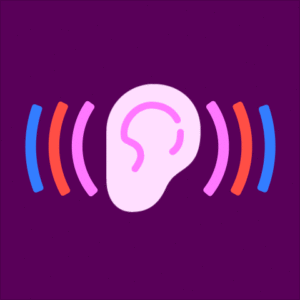If you often find yourself distracted when trying to listen to someone, control your environment as much as possible. Before you begin, set an intention by taking a moment to deliberately focus on this person, in this moment, in a conversation that will be about this topic. If appropriate, use a written agenda or white boarding to keep yourself and the other person aligned. If you do have a lapse in attention, admit it, apologize, and ask the person to repeat what they said. (Yes, it can be embarrassing, but it happens to everyone occasionally and to some of us frequently.) Arrive a few minutes early to acclimate yourself if you are having a meeting in a new place.
My coaching business has changed radically since the pandemic and I use Zoom 90% of the time. Depending on the type of call it is very easy to be distracted, scroll your phone, or even daydream. For me, taking notes helps me stay focused. as well as asking questions when I can. Recording the calls enables me to review what transpired and remind myself of important items, especially ones that need follow thru.
Listening is vitally important, sadly it is minimally taught, can be physically and mentally taxing, and in the aftermath of Covid-19 never been more difficult. As we close in on a third year of unprecedented upheaval in work and life, employees and managers alike have more questions than ever — concerns that they may find it difficult to articulate for a variety of reasons, from mental fog to the sheer novelty of the situation.
Now is the time for all of us, not just leaders or persons with authority, to really listen, understand the context, resist the temptation to respond with generic answers, and recognize your own listening limitations — and improve on them. If you haven’t taken the assessment in the previous article, it is a great first step to awareness. Remember you can’t change things until you are aware of them. Have compassion for yourself — you can’t scream at your own brain like a drill sergeant and whip that raw grey matter into shape. What you can do is recognize your weak points and make the necessary adjustments.
Listen carefully. Helps you to: • Understand • Comprehend • Evaluate • Careful listening will require a conscious effort on your part. • You must be aware of the verbal and nonverbal messages (reading between the lines). • Be mentally and physically prepared to listen.
You can’t hear if YOU do all the talking. Don’t talk too much. • Listen with empathy. • Be courteous; don’t interrupt. Take notes if you worry about forgetting a particular point. • Avoid stereotyping individuals by making assumptions about how you expect them to act. This will bias your listening.
Listen to how something is said. Be alert for the emotions behind the words. • Listen without thinking about how you’re going to respond • Make certain you give the other person an opportunity to voice their opinions. Don’t dominate the conversation. • Maintain good body posture
Avoid selective listening • Avoid distractions • Ask questions to stay active and interested. • Face the speaker • Maintain eye contact • Respond appropriately – say yes, nod, etc. • Do not be preoccupied with your own thoughts.
If any of you have tips on how you improved your listening skills, please share as we can all benefit.
 Ok It’s a little hokey. Every category listed needs good listening skills to succeed. I could also include parents, teachers, doctors and more.
Ok It’s a little hokey. Every category listed needs good listening skills to succeed. I could also include parents, teachers, doctors and more.
Recent Comments